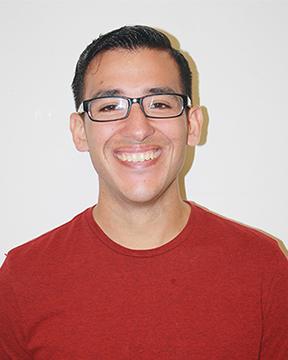Kinesiology Major Andrew Casillas really didn’t know what to expect when he attended the Domestic Violence Workshop for extra credit, but was impressed by what he learned.
“I thought (the workshop) was very informational and…when I went in I didn’t know what domestic (violence) meant, but I came to learn that it occurs with women and men.”
The workshop was sponsored by the Re-Entry Resource Program to educate to students what domestic violence is and how students can recognize it.
Maria Cevallos Master of Social Work, a psychiatric social worker with the Los Angeles Department of Mental Health hosted the workshop.
Shannon Estrada from Career Resources was in charge of coordinating the workshop.
“This is the first time we ever had the domestic violence workshop, but I try and do meaningful workshops every semester,” Estrada said.
“I think it’s an important issue that happens all the time and you never know who it’s happening too and where. And I think a lot of times women don’t know to report (it) or they don’t know what to do or maybe if they have a friend in that situation they don’t know how to help them.”
The workshop covered many different topics such as dispelling certain myths such as the idea that abuse only happens to women of certain backgrounds, that only women and not men can be abused, or that domestic abuse is a personal issue between couples.
Different types of abuse were covered such as emotional and verbal abuse to show that not all abuse is physical and how emotional abuse can be more destructive than physical.
According to Cevallos, “Emotional abuse hurts you more than physical abuse. (With) physical abuse you get bruises and what not, but it heals. Emotional abuse doesn’t heal very quickly.”
Students also learned why victims will stay with abusers and the effects that abuse can have on families, especially children.
Cevallos said, “To me the most important issue is to spread the word because so many people are affected by this, especially children.”
At one point Cevallos asked all the students in the audience to count themselves from one to three. After they did this she asked the students who counted themselves as two to stand up.
She explained that she wanted to demonstrate that one out of three women has been a victim of domestic abuse at some point in their lives and that most people probably know an abuse victim and don’t realize it.
Cevallos also explained how abuse victims need to prepared if they plan to leave their abusers.
This was an important idea to a child development major, who wishes to remain anonymous, who never really thought about how hard it was for abuse victims.
“Before I (thought that) if you (were being) abused you just up and leave, I didn’t know you had to have a plan.”
Cevallos also explained how students can help if they suspect someone they know is being abused.
“What they can do is provide a listening ear for the person without judgment, that’s the most important thing, and give them resources. They need to know shelters that are available for them.”
At the end of the workshop students were provided with a list of shelter and hotlines that students could use if they or someone they know.
Even with this outside help both Cevallos and Estrada emphasized that students have resources on campus at their disposal.
“We do have the Student Health Center and there are psychological services available to students for free,” said Estrada.
“A lot of students don’t know that’s there. So they can get help if they need it and other referrals as well.”
Students can reach the health center by calling (562) 860-2451, extension: 2321, or by visiting during business hours.
The health center is open during the week during the following hours.
Monday and Wednesday from 8 a.m. to 4 p.m., Tuesday and Thursday from 8 a.m. to 8 p.m. and Fridays from 8 a.m. to noon.









